
Ritra 100mg Capsule
Manufacturer
Yester Pharma Pvt Ltd
Salt Composition
Itraconazole (100mg)
Key Information
Short Description
Ritra 100mg Capsule is an antifungal medication used to treat fungal infections of the mouth, throat, vagina, and other parts of the body including fingernails and toenails.
Dosage Form
Capsule
Introduction
Ritra 100mg Capsule should be taken in the dose and duration as prescribed by your doctor. It should be swallowed whole and can be taken with food. To get the most benefit, take this medicine at evenly spaced times and continue using it until your prescription is finished, even if your symptoms disappear after a few days. If you stop the treatment too early, the infection may return and if you miss doses, you can increase your risk of infections that are resistant to further treatment. Tell your doctor if the infection does not get better or if it gets worse.
Directions for Use
Take this medicine in the dose and duration as advised by your doctor. Ritra 100mg Capsule is to be taken with food.
Safety Information
Side Effects
No common side effects listed.
Alcohol Warning
Caution is advised when consuming alcohol with Ritra 100mg Capsule. Please consult your doctor.
Breastfeeding Warning
Ritra 100mg Capsule is probably unsafe to use during breastfeeding. Limited human data suggests that the drug may pass into the breastmilk and harm the baby.
Pregnancy Warning
Ritra 100mg Capsule may be unsafe to use during pregnancy. Although there are limited studies in humans, animal studies have shown harmful effects on the developing baby. Your doctor will weigh the benefits and any potential risks before prescribing it to you. Please consult your doctor.
Interacting Medicines
Alfuzosin Amisulpride Aripiprazole Carbamazepine
How it works
Ritra 100mg Capsule is an antifungal medication. It kills fungi by destroying the fungal cell membrane. This treats your skin infection.
Quick Tips
Ritra 100mg Capsule helps treat fungal infections of mouth, skin, vagina, or any other parts of the body Do not skip any doses and finish the full course of treatment even if you feel better Take it with food, preferably at the same time every day Use a reliable method of contraception to prevent pregnancy while taking this medicine Do not take indigestion remedies (antacids) within 2 hours of taking Ritra 100mg Capsule
Related Medicines

Nokver 100 Capsule
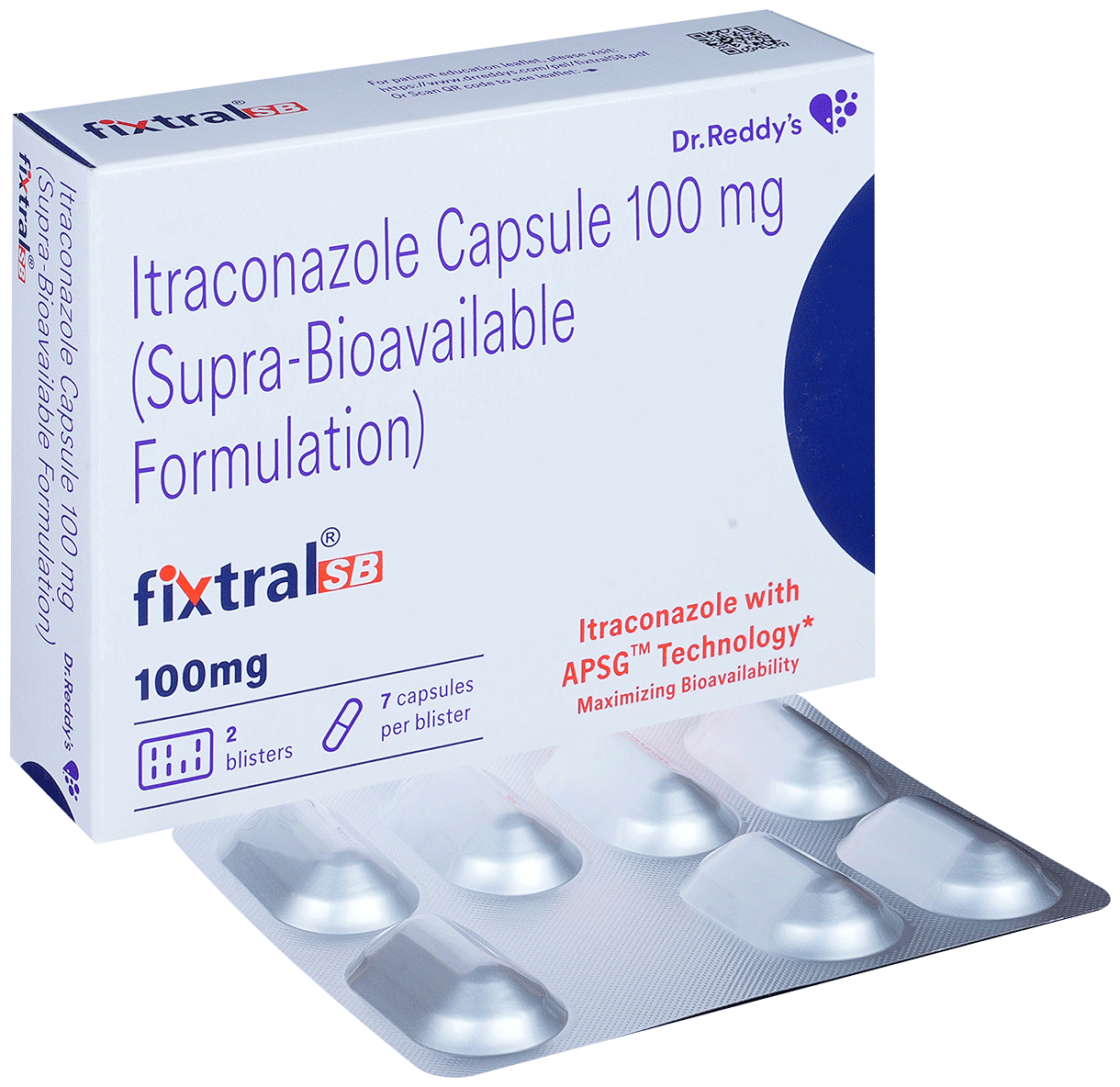
Fixtral SB 100mg Capsule
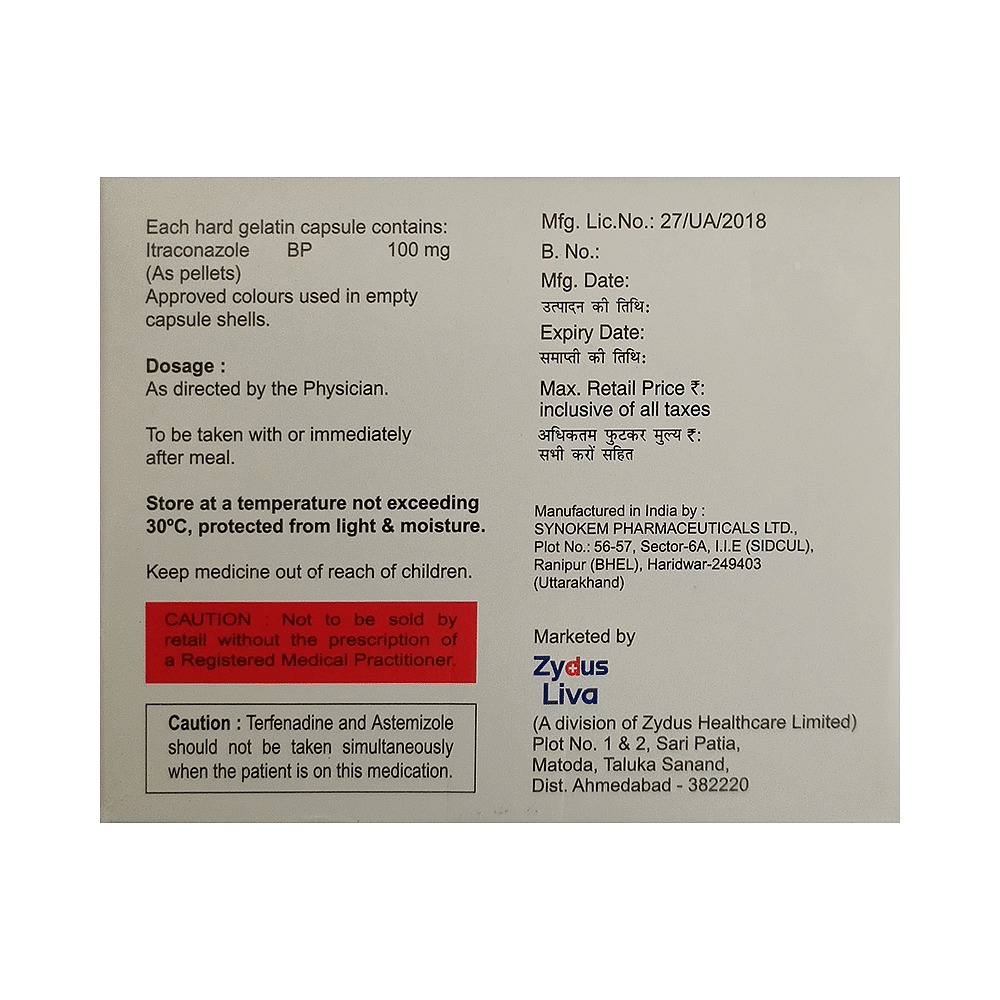
Mycoclear 100 Capsule

Itracon-100 Capsule
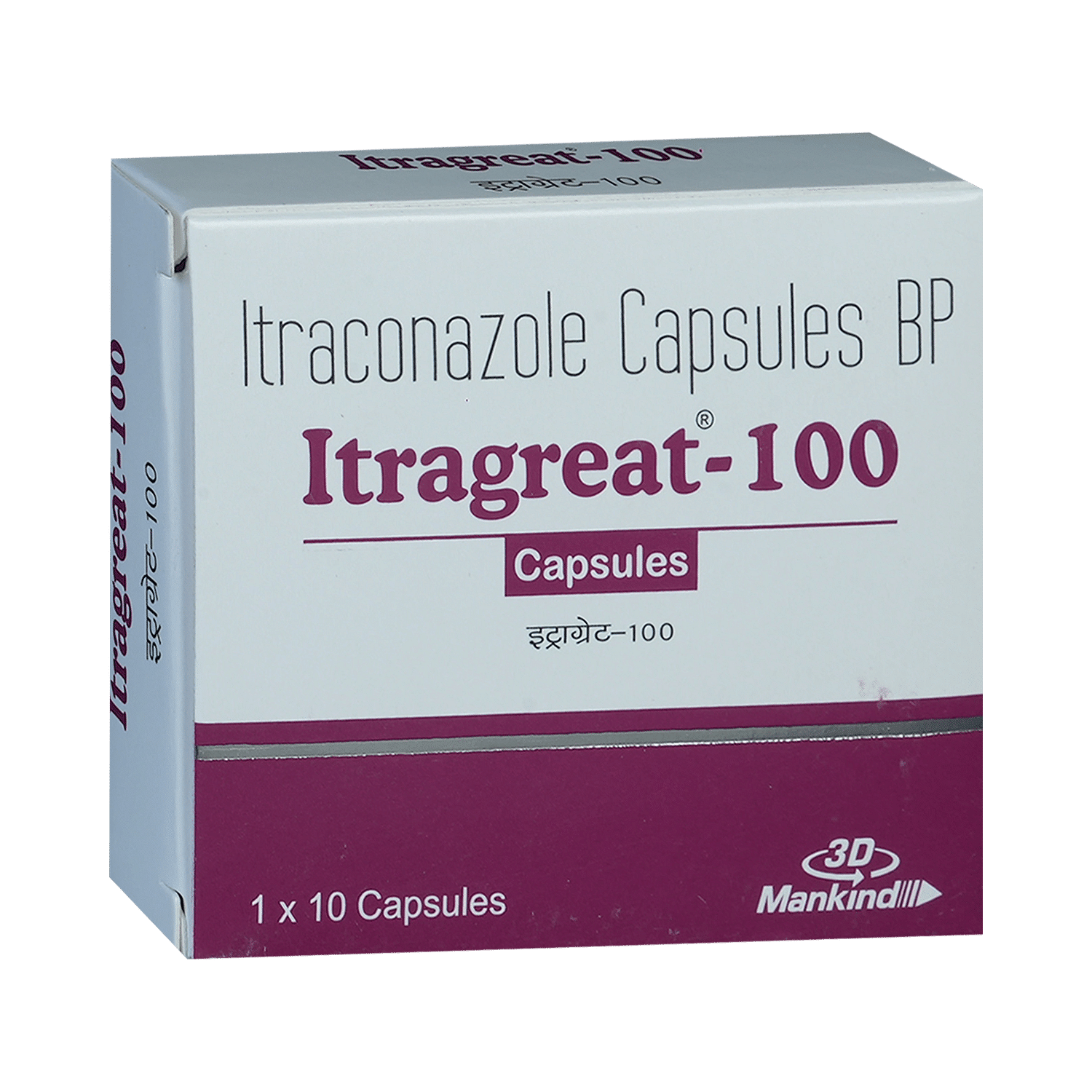
Itragreat 100 Capsule
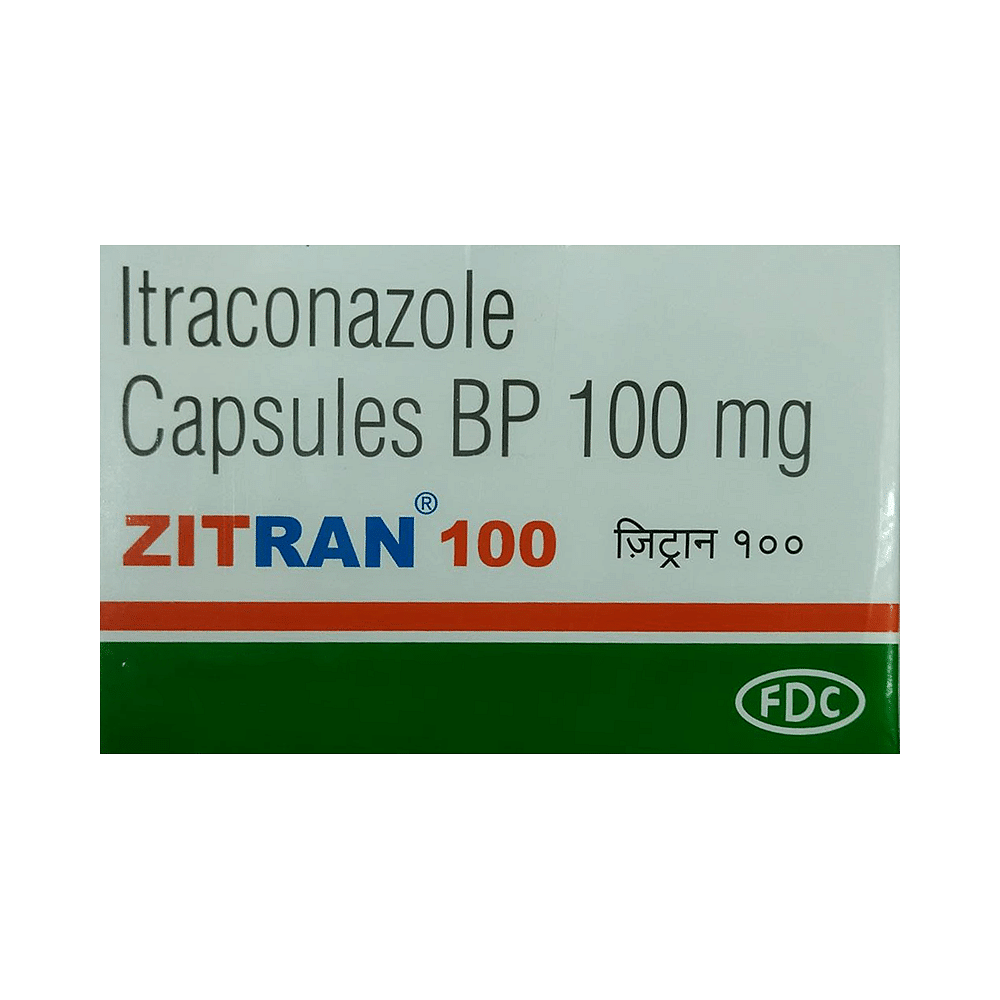
Zitran 100 Capsule
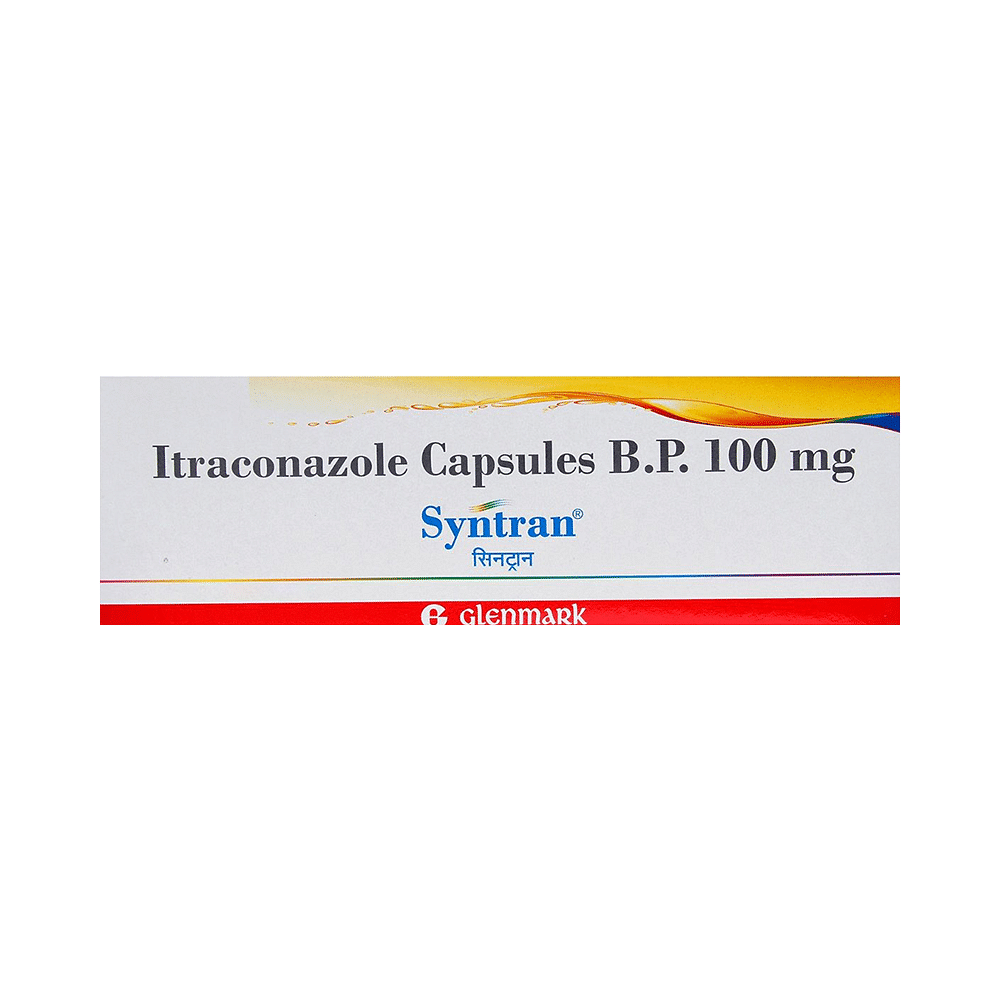
Syntran 100 Capsule
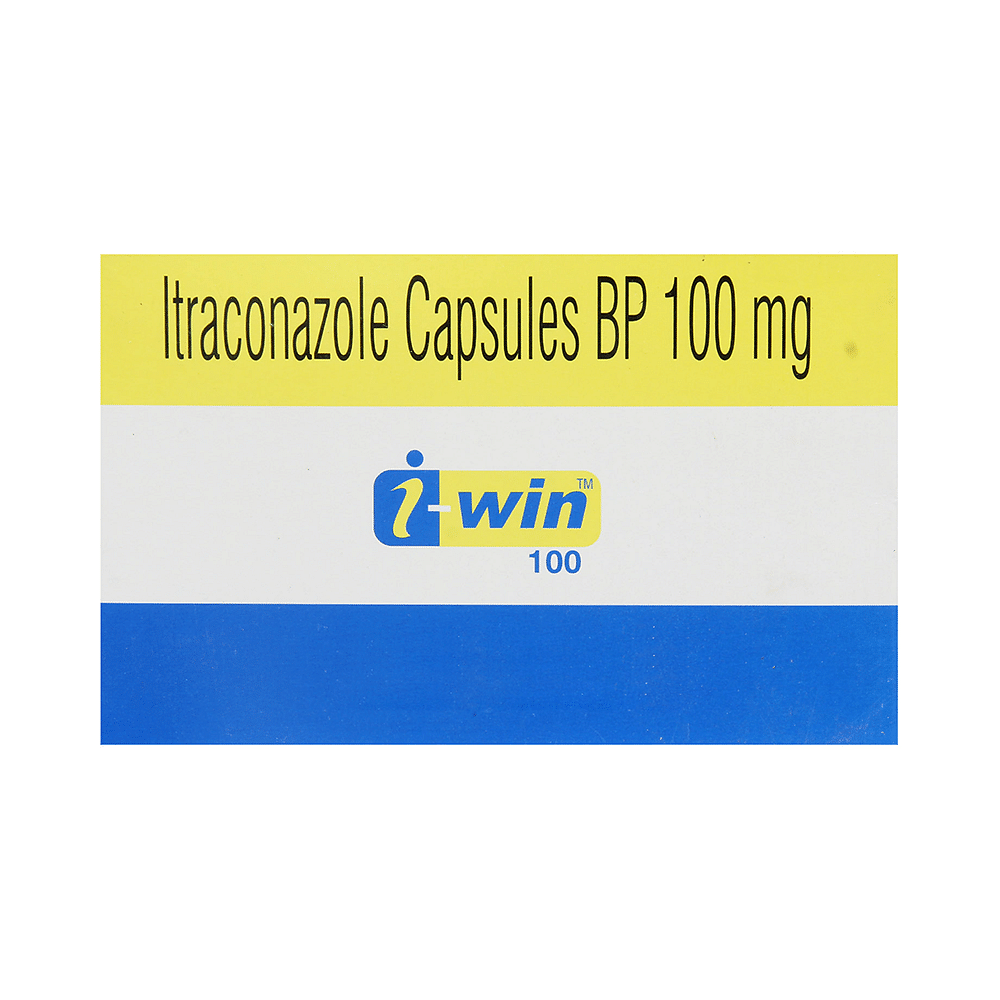
I-Win 100 Capsule
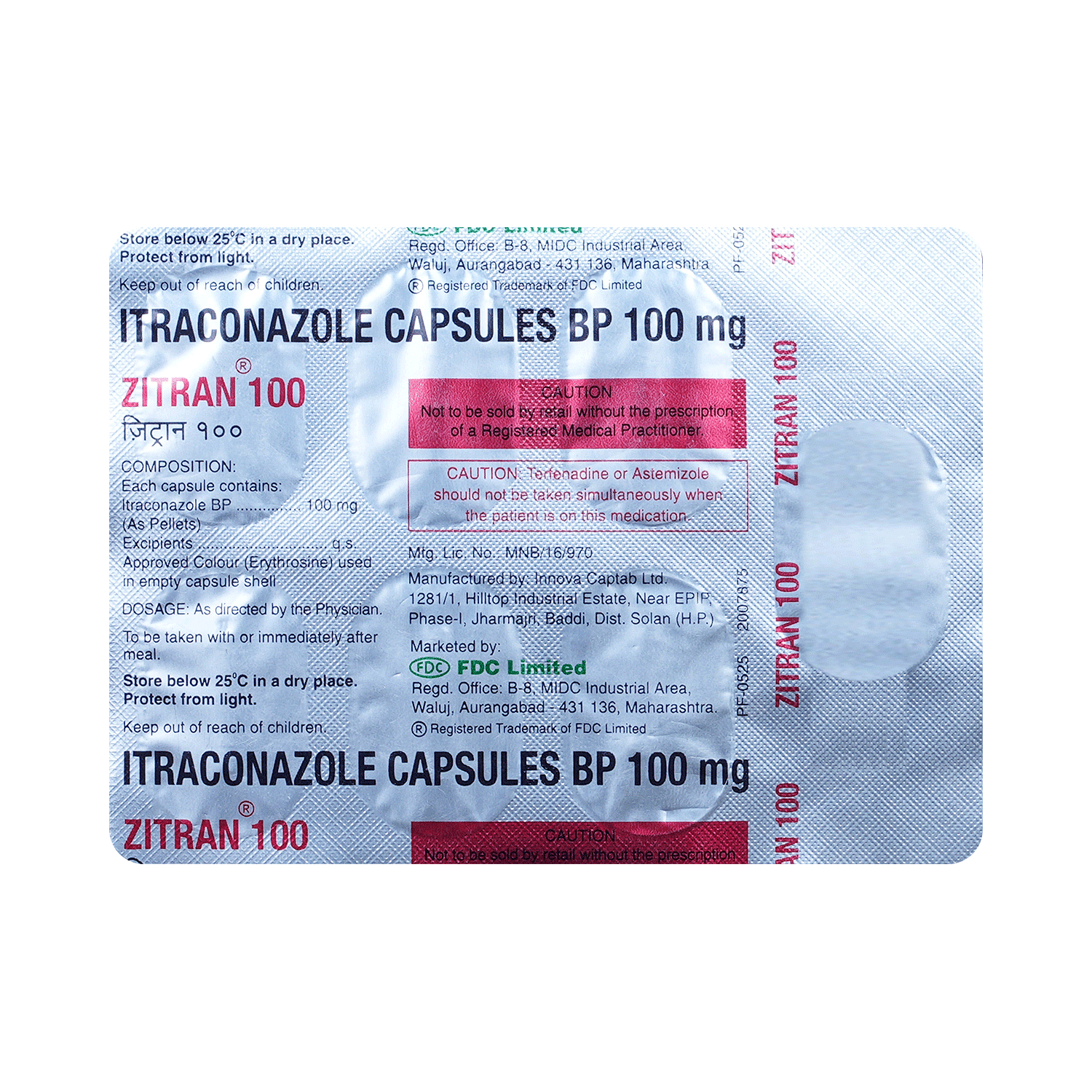
Zitran 100 Capsule
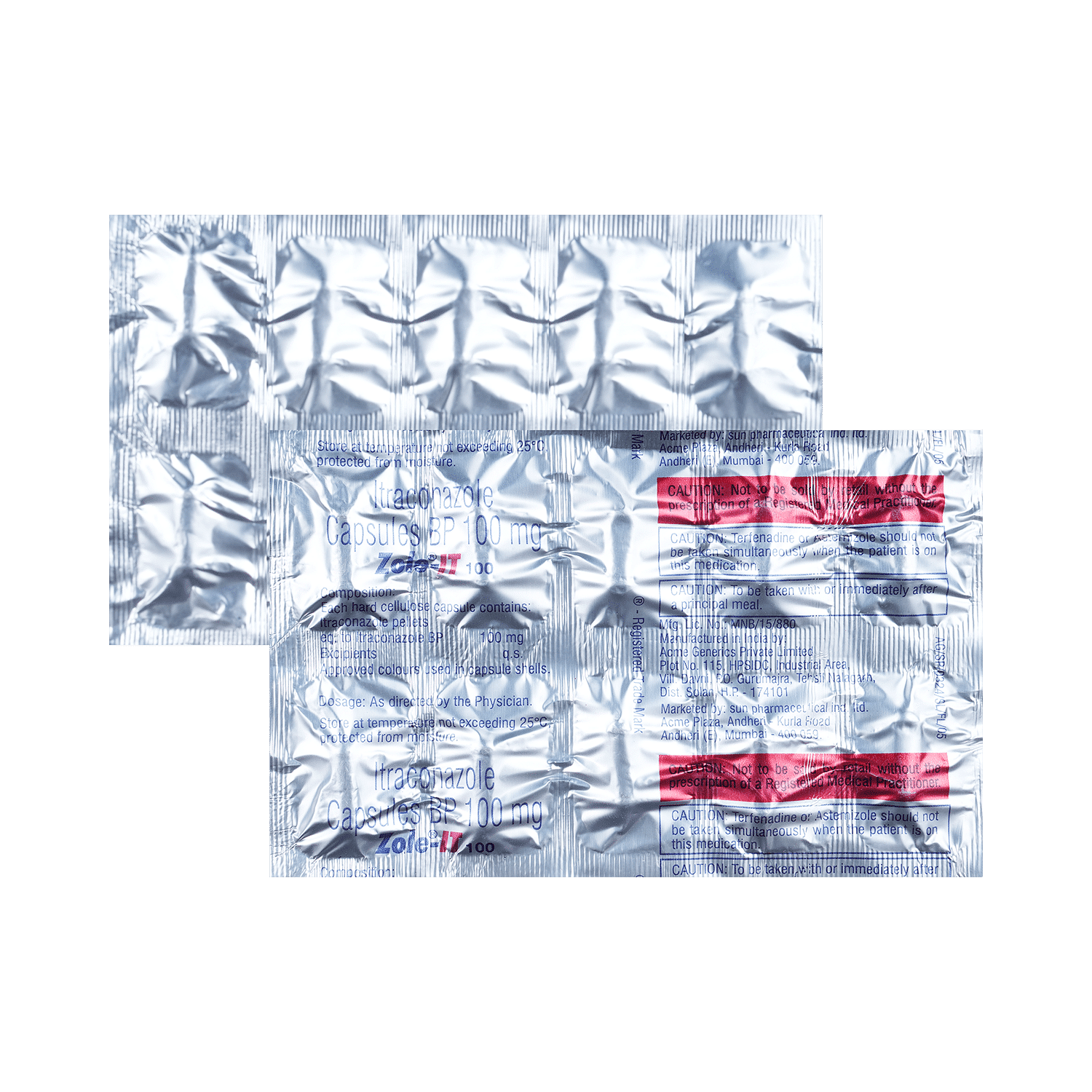
Zole-IT 100 Capsule
Frequently asked questions
What is Ritra 100mg Capsule used for?
Ritra 100mg Capsule is used to treat fungal infections caused by Trichophyton spp., Microsporum spp., and Epidermophyton floccosum. The infections can include ringworm infection, foot infection, or groin and buttocks infections. It also treats persistent nail and toenail fungal infections, as well as candidiasis (yeast) infections of the vagina or mouth/throat in patients with lower disease resistance. Additionally, it is used for the treatment of cryptococcal infection and infections caused by Histoplasma, Aspergillus, and Blastomyces.
For how long do I need to take Ritra 100mg Capsule?
The dose and duration of treatment depend on the type and site of the infection, and your individual response to therapy. For example, for athlete's foot (fungal infection of the skin on the feet and between the toes), the dose may require 30 days of administration. However, if you are treating candidiasis of the vagina, the treatment duration might span from one day to three days depending on the doctor’s dosage recommendation.
I am taking Ritra 100mg Capsule for a nail infection but there does not seem to be any improvement. Can I stop taking it?
No, you should not stop taking Ritra 100mg Capsule without completing the entire course, as this could prevent complete fungal eradication. It usually takes approximately six to nine months for nail lesions to disappear because after the medication eliminates the fungus, new nails take several months to grow. Keep in mind that if you do not see any improvement during treatment, it is normal.
Why has my doctor asked me to get blood tests done?
Your doctor may have ordered blood tests to monitor your liver function because Ritra 100mg Capsule can potentially cause serious liver damage. If you develop symptoms such as loss of appetite, nausea, vomiting, dark urine, or abdominal pain while taking Ritra 100mg Capsule, it's crucial that you inform your doctor immediately.
Can I take antacid and Ritra 100mg Capsule together?
Ritra 100mg Capsule can be taken by the body if there is sufficient acid in the stomach. Medicines for heartburn, indigestion, or stomach ulcers neutralize the acid produced by the stomach. Therefore, take antacids or any such medicine about two hours after taking Ritra 100mg Capsule. If you're taking antacids (medications that stop the production of stomach acid), please consume them with a glass of cola.
What is drug resistance? Is it possible to develop resistance to Ritra 100mg Capsule?
Drug resistance can occur when fungal cells in your body change their nature, making the medication ineffective. This process is called drug resistance. It has been reported that Ritra 100mg Capsule may be less effective against certain candida species (krusei, glabrata, and tropicalis). Therefore, if your infection is caused by these species, Ritra 100mg Capsule should not be used.
I have been on alprazolam for quite some time. Is it okay if I start Ritra 100mg Capsule now?
Yes, you can take both Alprazolam and Ritra 100mg Capsule together, but keep an eye out for side effects of alprazolam such as lightheadedness or drowsiness. If you experience any side effects after taking Ritra 100mg Capsule, speak to your doctor, who will possibly adjust the dosage of alprazolam.
My doctor prescribed Ritra 100mg Capsule but not to my friend who had a similar fungal infection because she was on dofetilide. Why is it so?
Your doctor did not prescribe Ritra 100mg Capsule to your friend because it interacts with dofetilide, which interferes with the heart's electrical activity and can be harmful.


